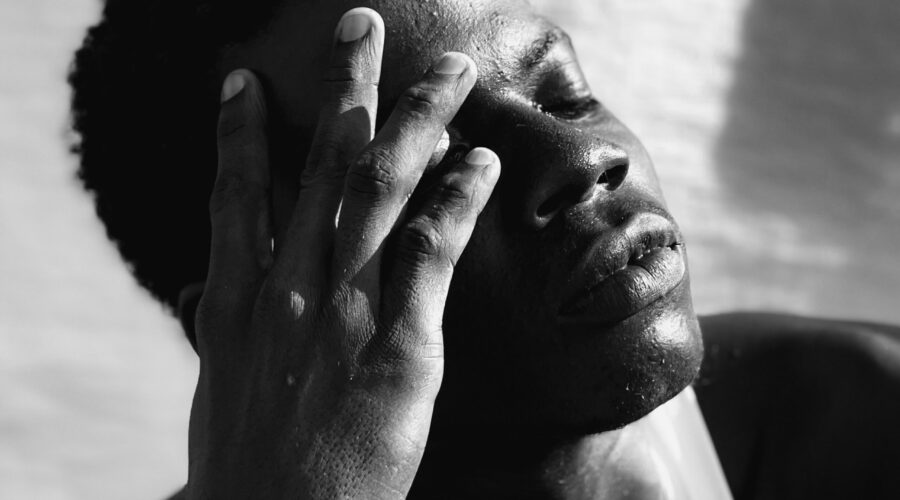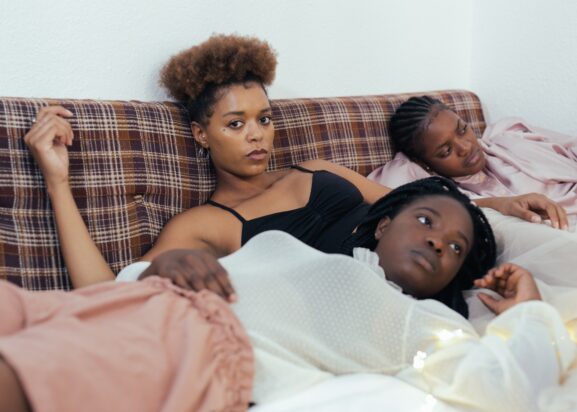Black Cinema + Mental Health
Since the earliest stages of cinema, Blackness has always made a substantial impact on those both outside and inside of the community. From early stars and filmmakers like Hattie McDaniel, Sidney Poitier, Oscar Micheaux, and Charles Burnett to our modern-day idols like Spike Lee, Ava Duvernay, and Viola Davis, Blackness and cinema have always intercepted. These components, Black actors, producers, directors, and those behind the scenes, make what we know today as Black Cinema.
Black cinema has been the pinnacle of hope, reflection, and representation for Black audiences. It serves this purpose to this very day, and the importance of that representation is more complex than many realize. Especially when looking at the intersection of mental health and Black Cinema.
Mental health is a touchy topic in our community, with many not knowing how to address such topics due to fear and racism.
This is where Black Cinema and its reflections on mental health in our community plays a role. Especially contemporary Black cinema, which often combines racism and mental health to portray better emotions of grief, anxiety, and depression related to the black experience.
Netflix’s They Cloned Tyrone, directed by Juel Taylor, and starring John Boyega follows the story of the main character, Fontaine (Boyega), and his eventual discovery of being cloned the night after being shot and killed. The movie, presented as a sci-fi – comedy, has underlying themes. The audience is not only introduced to the struggles of Black Americans concerning racism and a government that quite literally goes to the most heinous lengths to control and exploit Black communities, but we are also exposed to the anxiety, fear, grief, and depression that comes with racism and white supremacy.
Through Fontaine’s character, we can witness and relate to the grief he faces. The grief of losing his brother and mother, the grief of realizing that the life he thought he had is not his, the grief that comes with accepting that (temporarily). Yet also the anxiety and fear that comes with being watched and the depression that precedes when Fontaine realizes his place in life.
Fontaine’s struggles mirror those that Black Americans face daily. A community plagued by white supremacy while continuously grieving the loss of loved ones and even a better life. Mental health isn’t explicitly viewed as a central theme, but we start to feel the same hopelessness, grief, and overall depression that Fontaine experiences throughout the film.
When observing more examples of Black Cinema and mental health, it becomes very apparent that grief tends to be an integral emotion experienced—the grief of a poor life due to racism or even the grief of a loved one.
Ryan Coogler’s Black Panther: Wakanda Forever shows grief but also healing. The film showcases a Black community grieving the loss of their beloved king, yet while the characters on screen grieve, so do we as the Black audience. T’Challa, played by the late Chadwick Boseman, is not just lost to the characters in the movie. Boseman’s death also struck us as a Black community. Yet, Black Panther exposed us to community healing, and the audience went on that journey.
While loss and grief are often seen in Black cinema, we rarely witness healing. Black Panther, made for Black people by Black people, took us through that healing journey, leaving us with a message of hope.
Black cinema has a long way to go before we see deep portrayals pinpointing mental health education and resources within the community. While we wait, it’s essential to appreciate the gems of Black cinema we have. Representation is critical to finding a sense of belonging and identity, and perhaps one day, as mental health discussions in our community are more accepted, we will start to see those essential talks echoed in our cinema.



